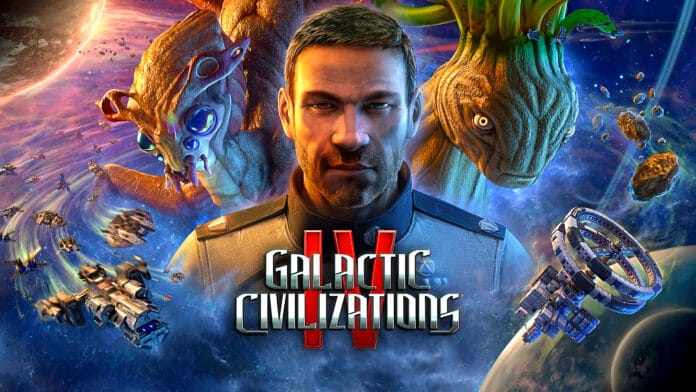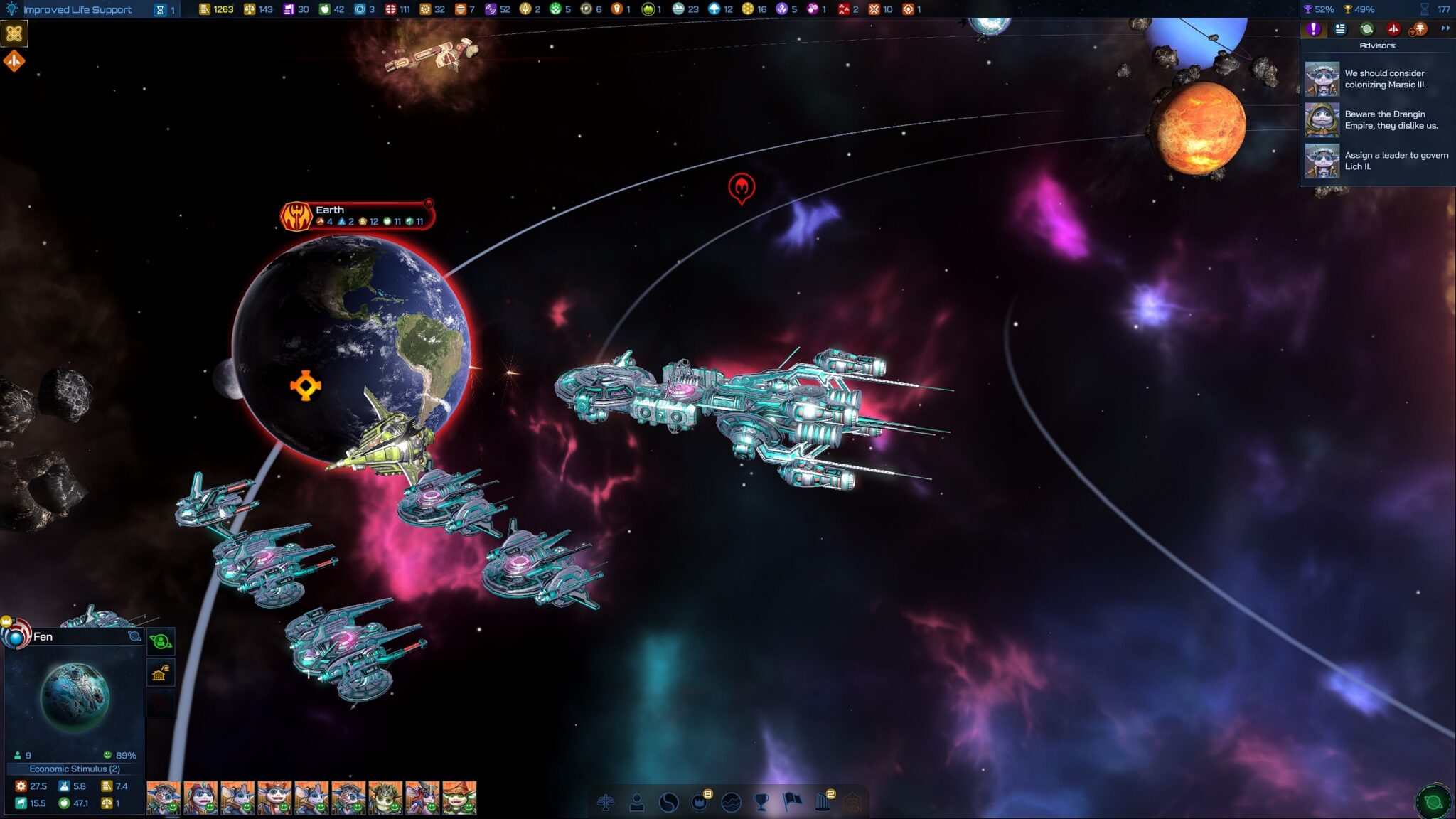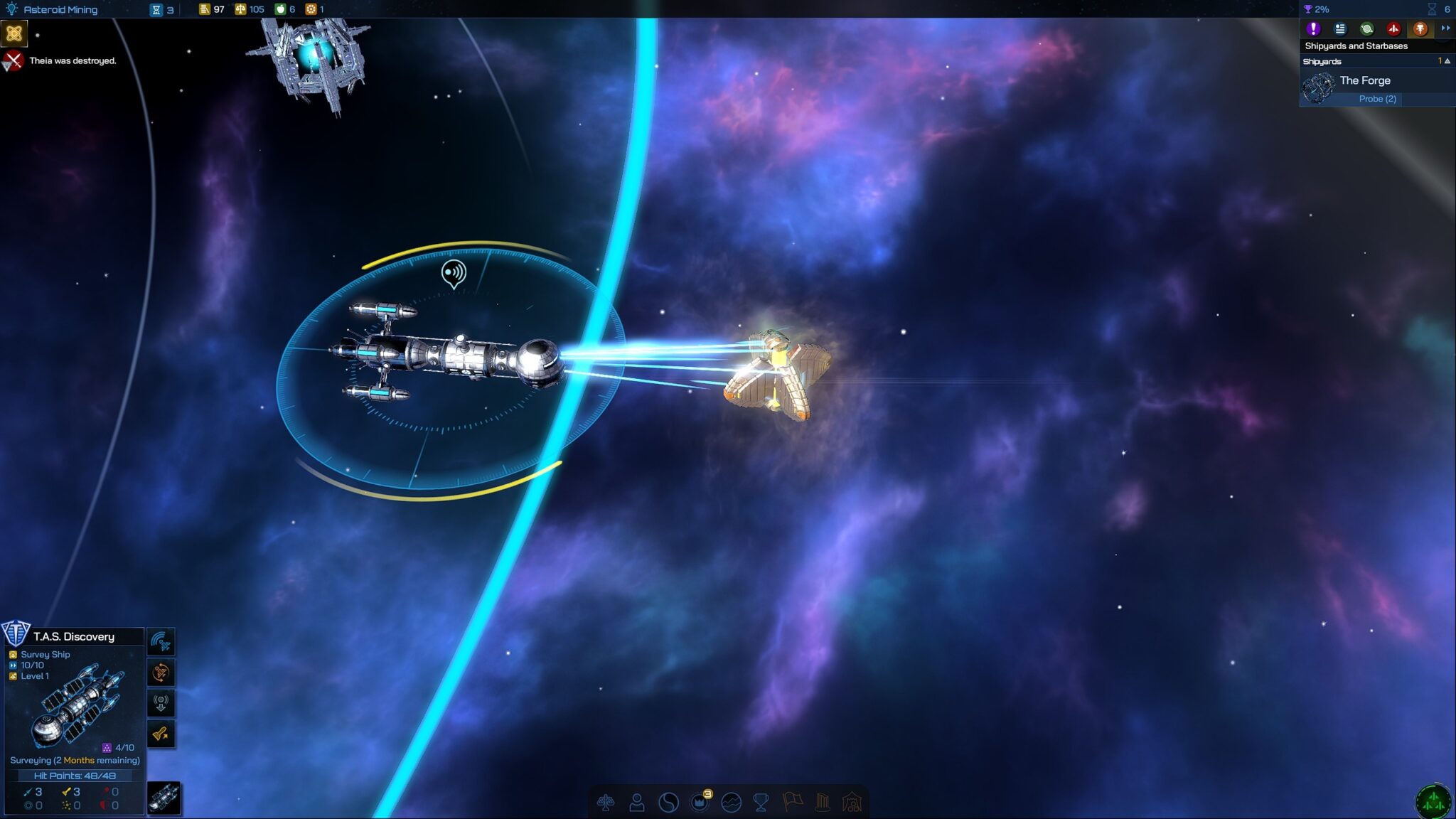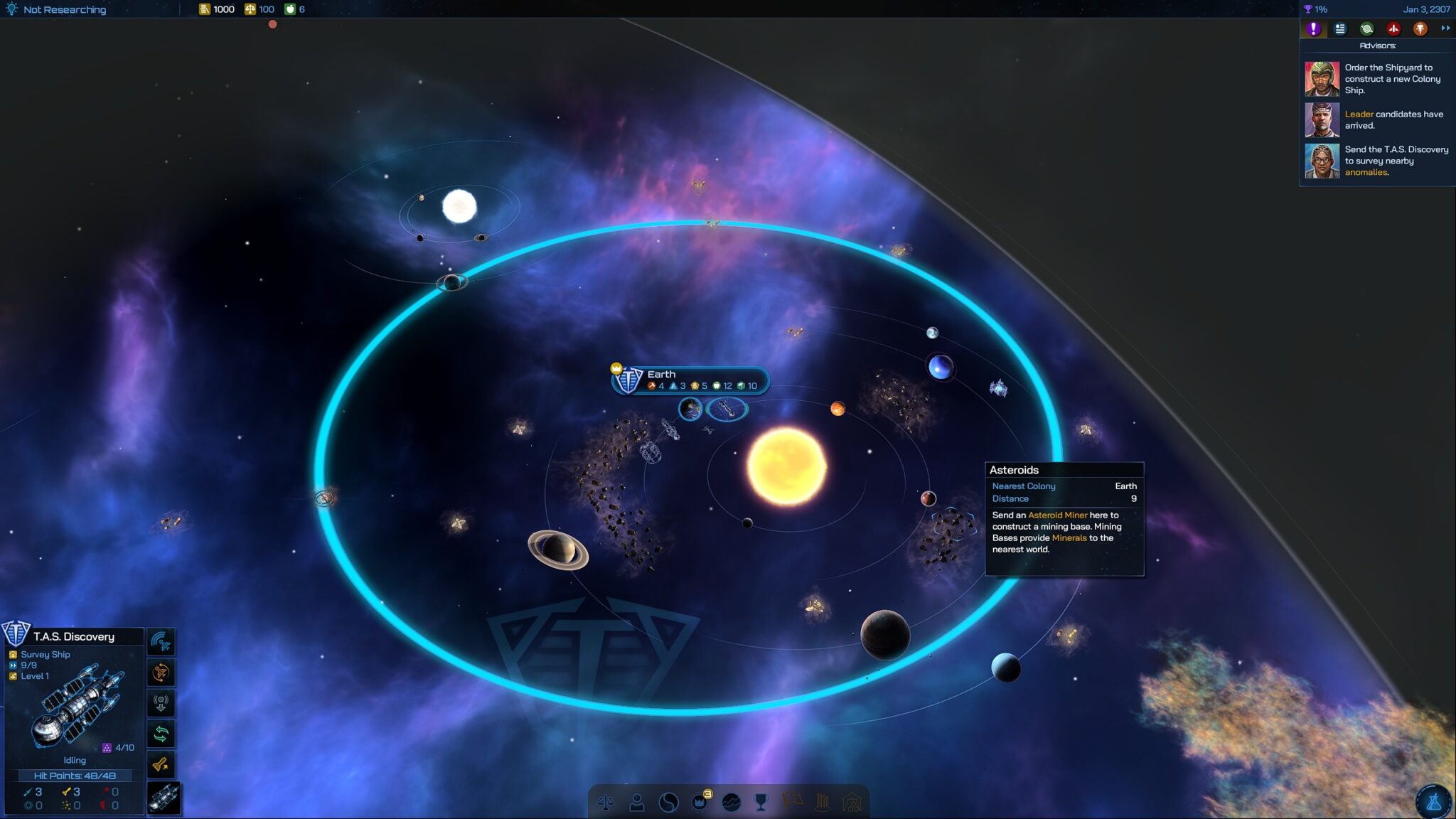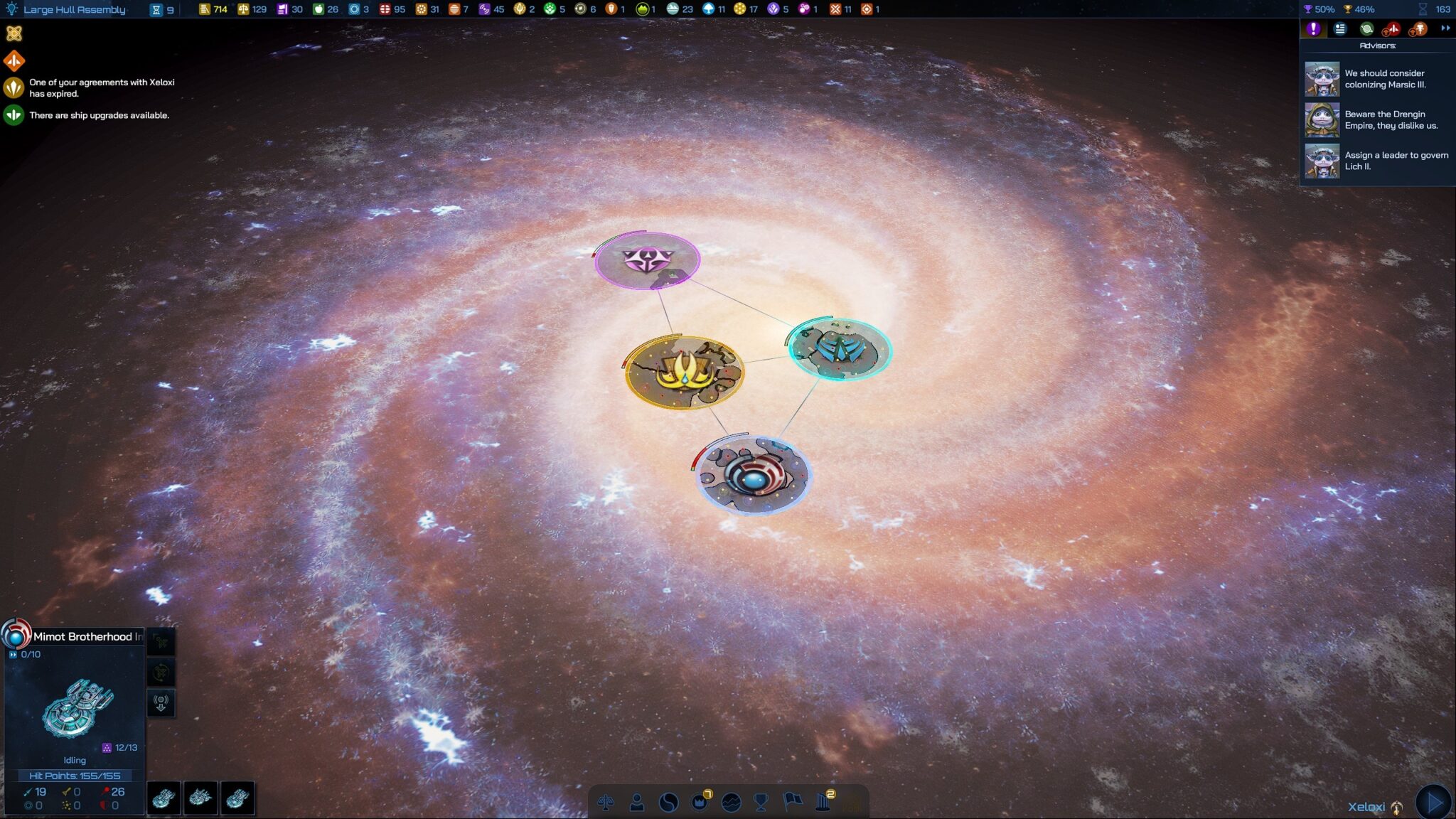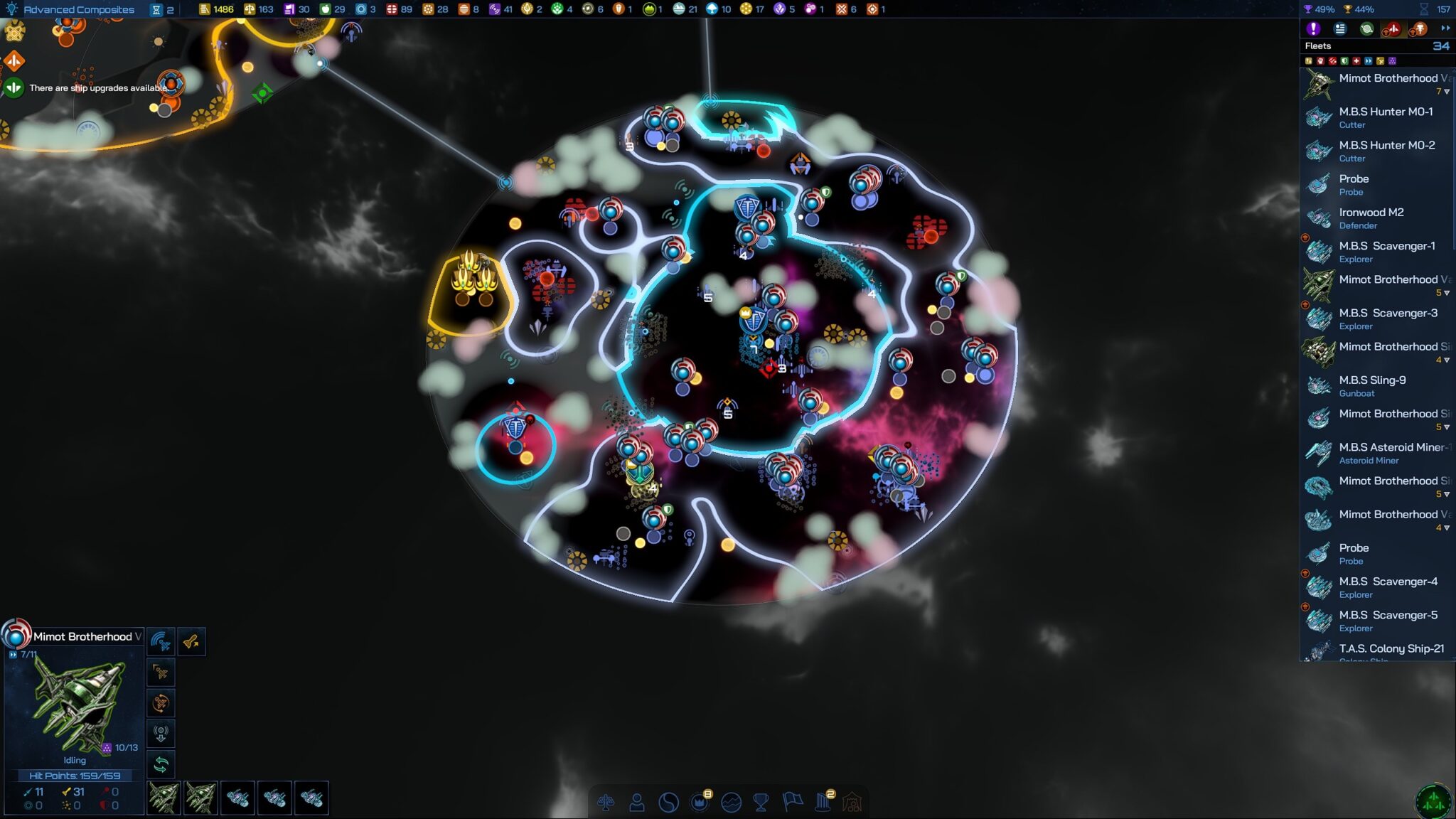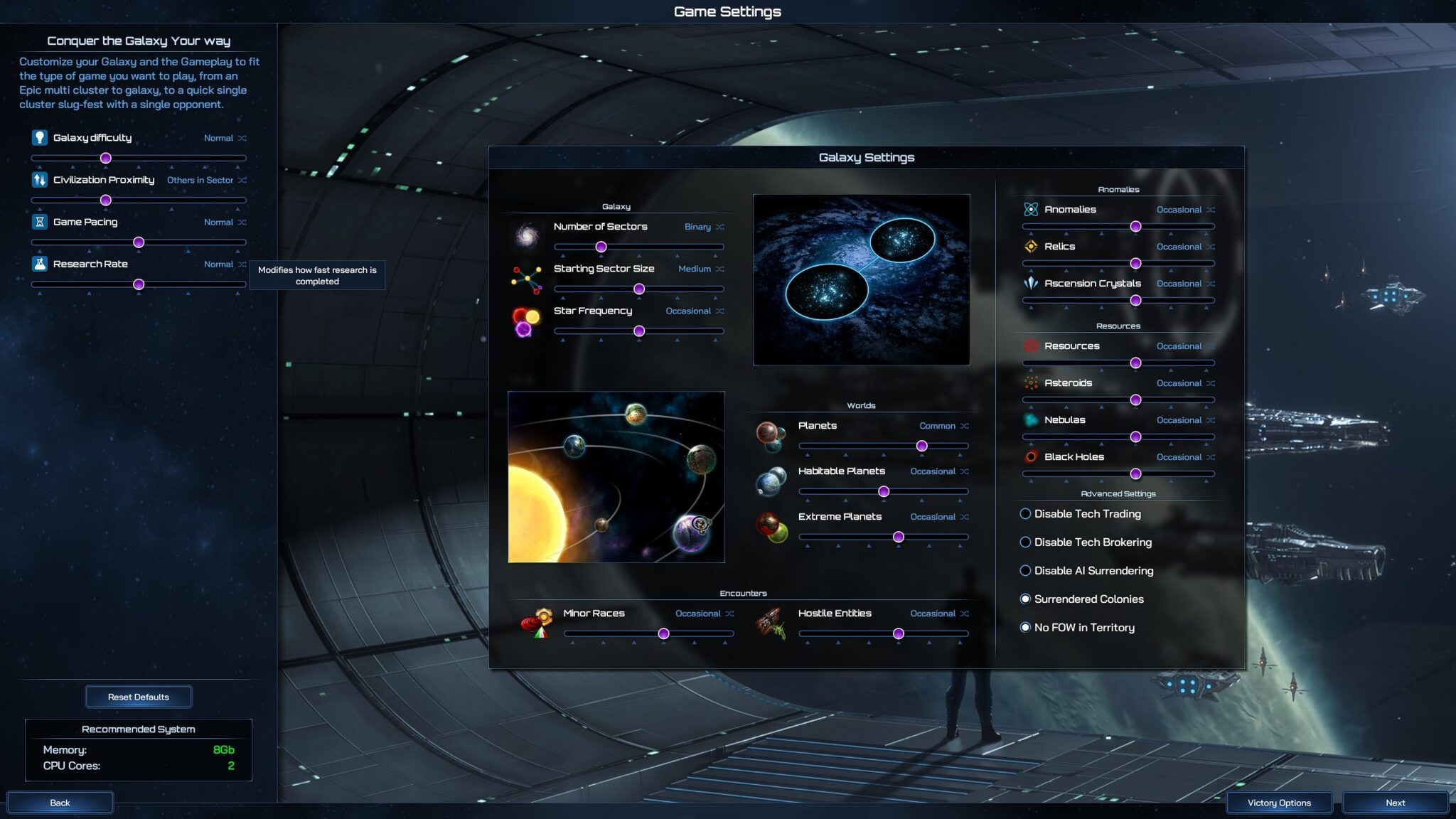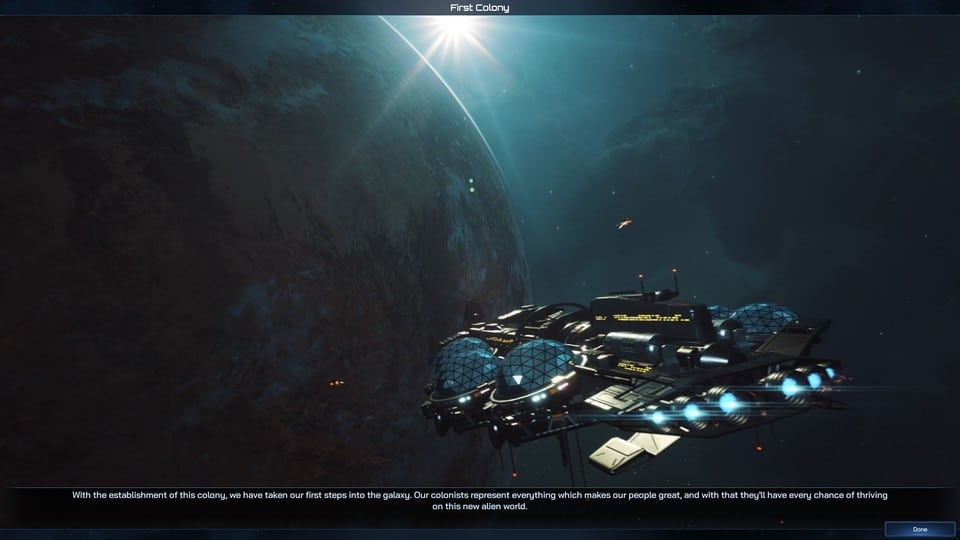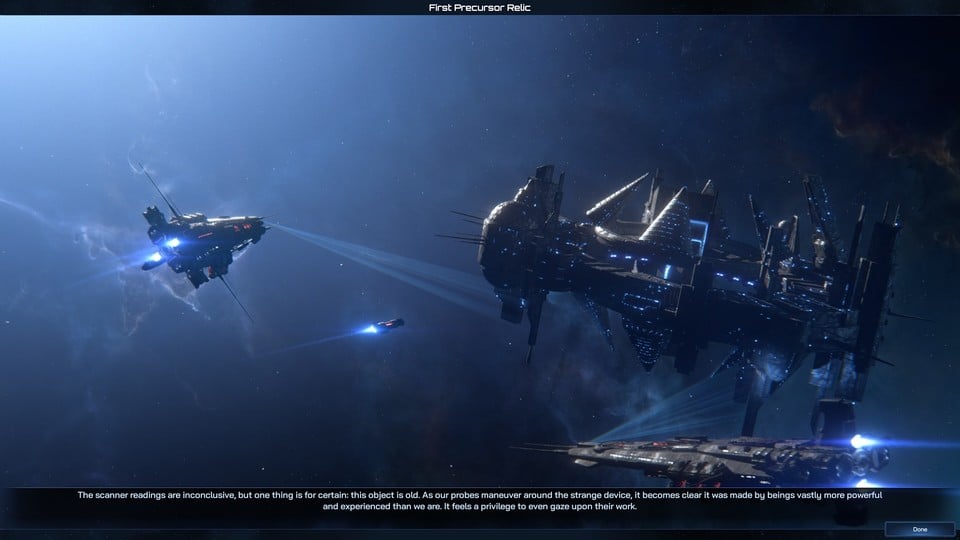In our review of the fourth instalment of the Galactic Civilizations series, we look for unique selling points and find that some days are gone.
It’s a bit of a coincidence that our podcast emcee Michael Graf raves about Master of Orion 2 in the current “What do you play” episode and reports that he still enjoys playing the classic after so many years – and prefers it to newer titles.
Because basically, this could also be the introduction to the test of Galactic Civilizations 4, which certainly has qualities, but provides few reasons to love it.
Table of Contents
Classic 4X turn strategy in space
Galactic Civilization 4 is a properly classic 4X turn strategy in space. Classic is no praise in this case, more on that later. You start with a planet, an exploration probe, an exploration ship and, depending on the species, a colony ship.
In the following, you explore the space around you, colonise more planets, build space stations to mine strategic resources and expand your sphere of influence. During the exploration you will find space monsters, space pirates, opposing factions and small anomalies that your research ship can investigate. So it’s all a bit like Stellaris.
Hidden behind the anomalies are short events that earn you small bonuses (such as experience for the ship, a few resources or a free spaceship) and are accompanied by short texts. Like most of the systems that also appear in Stellaris, the events cannot match Paradox Interactive’s sci-fi epic in their comprehensiveness and quality.
You manage, negotiate and wage wars
You also send out drones to mine minerals on asteroids and manage your core worlds. When you appoint a governor to a colony, you unlock the planet’s construction menu and can erect unique buildings or facilities there. The size of the planet determines the number of cultivable fields. The fields and buildings in turn have neighbourhood bonuses, so that with clever placement you can get the most out of research, income, agriculture, production or satisfaction.
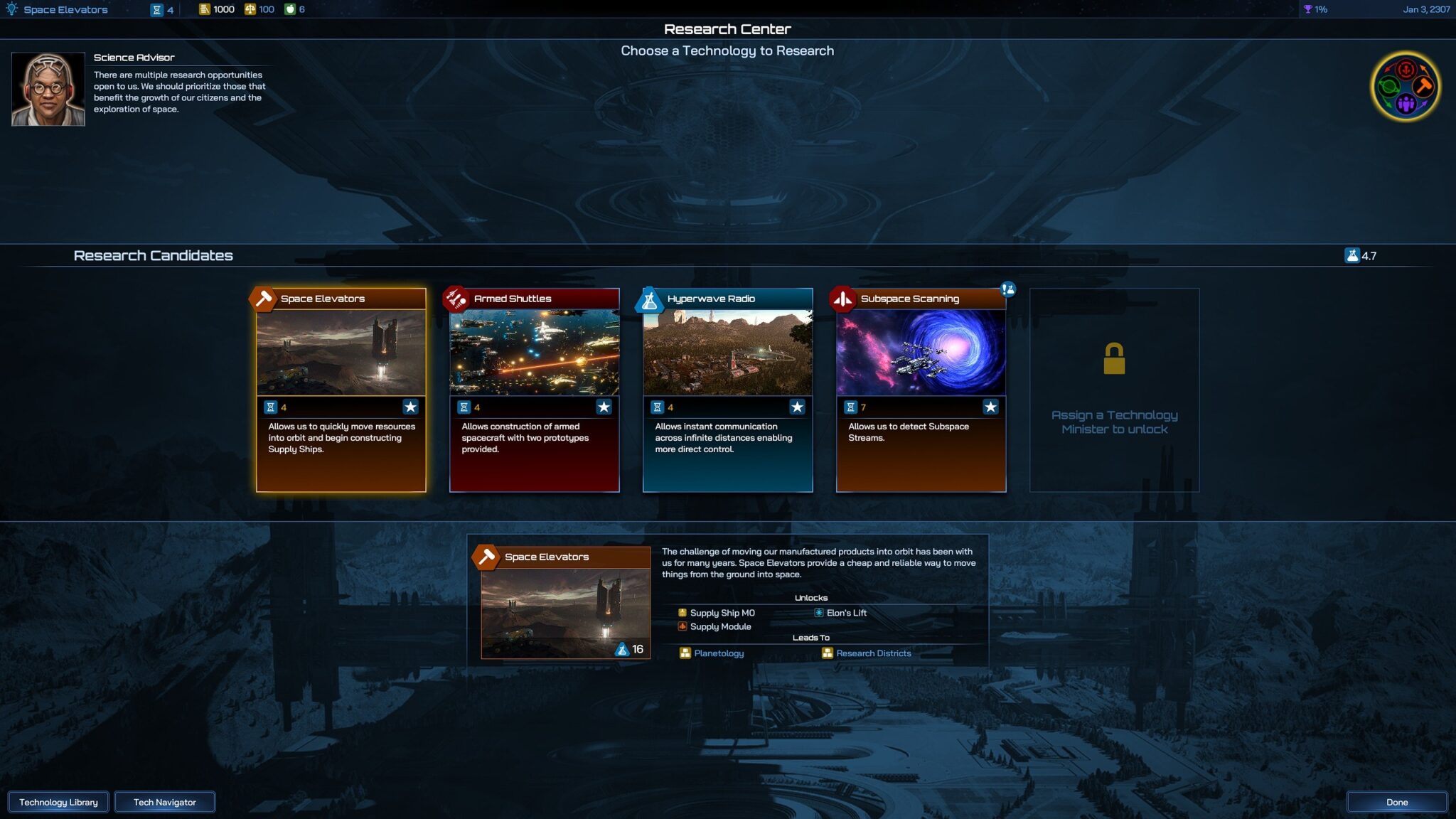
Earlier or later you will meet other AI empires. Depending on the setting, the races spread out over one or more round galaxy bobbles connected by hyperspace routes. The interaction with the AI is generally simple. You can exchange strategic resources or research, set up trade routes to foreign planets and declare wars. However, you should not expect a really profound diplomacy system.

War is sometimes annoying
Once you find yourself in a war, two peculiarities of Galactic Civilizations 4 come into play: On the one hand, in contrast to Stellaris, you are allowed to fly around freely in space, far away from the familiar Starlanes mechanics. On the one hand, this creates a good feeling of freedom, but it also makes wars annoying. Enemy fleets fly wildly and unpredictably through your space, attacking space stations and planets here and there. Keeping an eye on all this and fending it off is sometimes tedious legwork.
The battle for the planets, on the other hand, is quite simple. You simply let your fleet lay siege to a world for a few rounds and it’s yours. Only on particularly large planets do you need troop support in the form of a transport ship (which must first be unlocked through research).
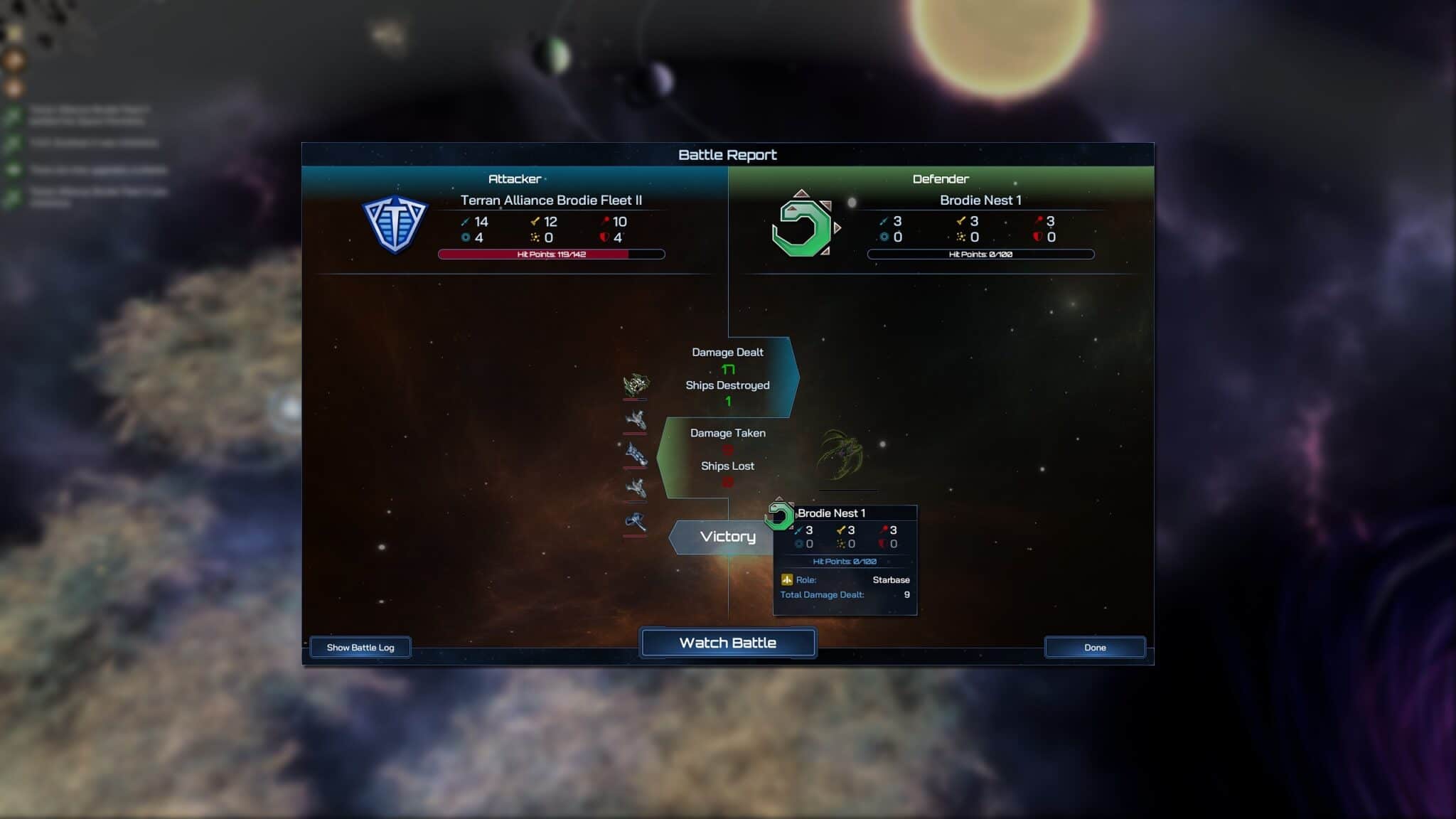
Planets can also switch sides if your influence in that area of the galaxy becomes too great. For this purpose, the game supports a dynamic border simulation. So you can also expand your territory indirectly in Galactic Civilizations 4.
However, the factors of influence are kept somewhat nebulous, which is also due to the lack of a tutorial. The basic mechanics are more or less self-explanatory, so you will have understood them after a first game, but the details remain under-explained.
The combat system makes it easy for the superior side
And so the exact economic relationships are not always clear to us either. Which is relatively irrelevant, however, because there is no great need for perfection. At least on the normal difficulty level, the AI acts too confusedly for there to be any real danger. However, if you go into a war completely unprepared, you will still get into trouble.
The combat system of Galactic Civilizations 4 can be quite aptly reduced to “all or nothing”. You can combine several ships into a fleet, which is urgently necessary because otherwise the firepower is not sufficient to even touch stronger opponents. Since you cannot attack enemy stations or fleets at the same time with several fleets, each fleet must be as strong as possible on its own.
Since the battles are usually fought to the destruction of one side (and you cannot actively intervene), it is important to have the clear upper hand. Otherwise the surviving ships will repair themselves in no time at all and you will hardly have made a difference.
Since the combat values also remain under-explained, we have mainly acted according to our feeling in our games. If our ships looked fatter or were outnumbered, we attacked (and still sometimes lost).
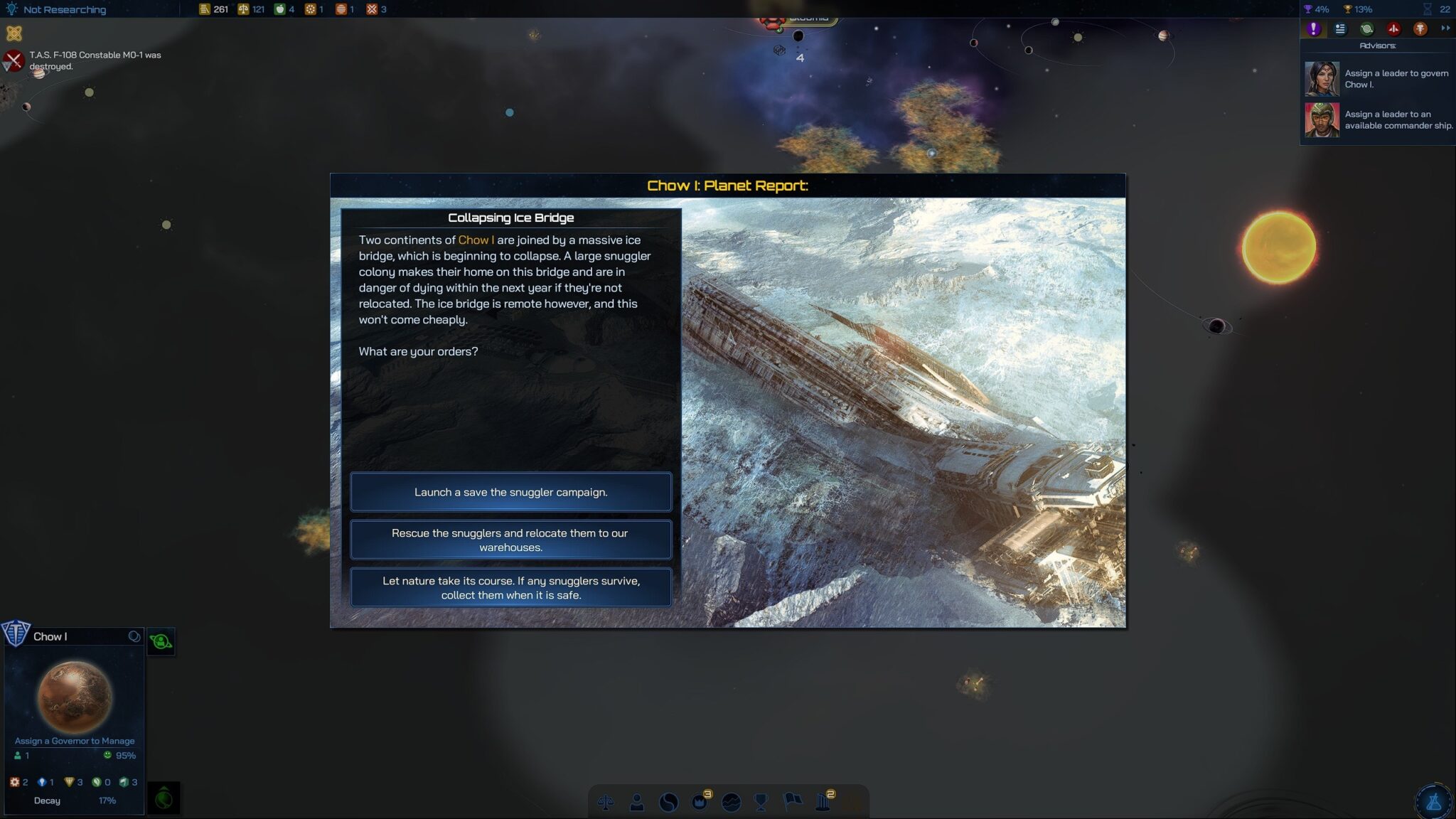
No crises, boring lategame
There is no such thing as mid- and endgame crises, as known from Stellaris, in Galactic Civilizations 4. Once you are strong enough to defeat an AI, you are strong enough to defeat all the AIs in turn, as is usually the case in this kind of game.
This makes the endgame rather boring in a typical way. Although there are alternative winning conditions, they always end up in dominating larger parts of the galaxy. So there is no escaping the war.
Supersolid – but is that good enough?
Although criticism is everywhere in this review, this is not to say that the game is not fun. Especially the initial phase with the exploration and securing of the most important planets and resources is entertaining. The 18 races provide different starting conditions and strengths, so that there is replay value. The cuddly Mimots, for example, have the advantage that all ships created can withstand 25 per cent less, but a duplicate of every ship built comes out of the shipyard. This means that the fleet strength grows much faster than with other species.
The problem then is rather that the rest of the gameplay is very similar. Even the number of anomalies is so low that they are still repeated within the same game. Since there are no special challenges and the general empire-building is not overly fun per se, the incentive to start Galactic Civilizations 4 over and over again is ultimately lacking … although the first two playthroughs are pleasurable.
It lacks a unique selling point especially in contrast to the competition, first and foremost Stellaris. And so the genre competitor from Paradox is ultimately superior in all respects. The only advantage of Galactic Civilizations 4 is that it can be learned more quickly and is easier to understand, as well as not consuming as much time.
Technically fine, but not mind-blowing
On the technical side, the game cuts a good figure, we only had one crash in the ship designer. It is enormously extensive and lets you customise the appearance and equipment at will, which is definitely a plus.

In addition, pretty video sequences are played during certain achievements, such as the first colony, but they cannot quite compensate for the overall somewhat thin atmosphere. The music is unremarkable, there is no announcer to say a few words now and then, and even the galaxy appearance is not special in any way, although outer space would actually lend itself to spectacular productions.
At the end of the day, all these little things make Galactic Civilizations 4 play too classic and unspectacular. Everything feels familiar and although hardly anything is really unsuccessful, everything feels a little arbitrary. Galactic Civilizations 4 is therefore most interesting for those who have played out the other genre greats and simply want the same thing again in a different form.
Galactic Civilizations 4 can be bought for just under 40 Euros exclusively at the (Epic Games Store)
Editor’s verdict
The classic recipe for building games in space has been outdated at least since Stellaris. Simply colonising a few planets, raising fleets and running over the AI is no longer enough, especially as this is well known from too many other games.
As hard as it is to criticise an actually solid game like Galactic Civilizations 4 in this way, I can’t help it. Because I simply can’t find an argument for why you should absolutely buy this game in particular.

